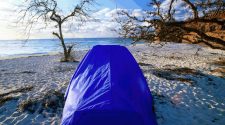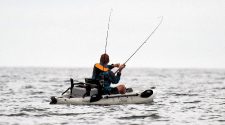The beauty of the outdoors is that there is an element to be enjoyed by everyone. Those who have a special affection for water often turn to scuba diving to satiate their passion. Whether you decide to add a scuba diving adventure to your vacation plans or want to begin regular diving expeditions in your own area, proper water training must be completed to ensure your safety and the safety of others in the water with you.
With the proper lessons, scuba diving can be a great hobby and adventure that can be fun and more rewarding than you can even imagine. The cost of dive classes will vary from place to place, but scuba diving is a skill that can be fine tuned into more than just a vacation activity or hobby. Even the most basic dive classes are a great stepping stone to doing more as a certified diver. You dont want to go for the cheapest dive classes you can find. You want reliable, certified Scuba dive instruction from a scuba instructor and Divemaster as there is a lot more to scuba diving than putting on a wetsuit and going underwater.
There are organizations out there that you can turn to find a Diver instructor or Divemaster that is certified, experienced and qualified. If you have a vacation coming up that you are plan to take a dive excursion, complete your dive classes before you go. Even if the place you are headed offers quick lessons, those are usually geared towards tourism and the lessons will be short and will brush quickly over some safety points you need to know to have a safe and fun experience.
Accidents are often the results of poor training. Carelessness and ignorance will find beginners in trouble when they get underwater, sometimes ending with fatal results. Taking a NAUI certified dive classes is the best way to be a responsible, well trained certified diver.
So before you take off on your vacation or out to your local dive spot take the first step and take the proper dive classes. Dive classes have a classroom portion that requires studying of the NAUI manual and a written exam. In conjunction with your classroom portion of your dive training you will take your confined water training in a local pool to learn about equipment use and get your first practice dives. Then you will have some form of open water diver classes/training where you get to go on a real dive under the close supervision of your Dive instructor/ Divemaster.
If you are already on vacation and wondering if a dive is a sensible choice, it is best to use caution. The most important tip for scuba diving anywhere is to always go in the water with a partner, a buddy dive. This is just as true for experienced divers as it is for beginners. Remember that the only way to communicate with your partner or other scuba divers while under water is using sign language. Make sure you learn the basic signs well. Checking your equipment yourself and asking questions before you dive into the water is extremely important. Double check that your tank is full, your goggles, fins, B.C., and regulators are in working condition. Always stay close to your group and the Divemaster.
Scuba diving is a great adventure and rewarding hobby that can take you to places you never imagined and provide you an opportunity to see the world in a whole new way. NAUIs motto is “Dive safely through education” by taking the proper dive classes and learning all of the proper dive procedures and safety measures; you will truly be able to enjoy your scuba diving adventures.





